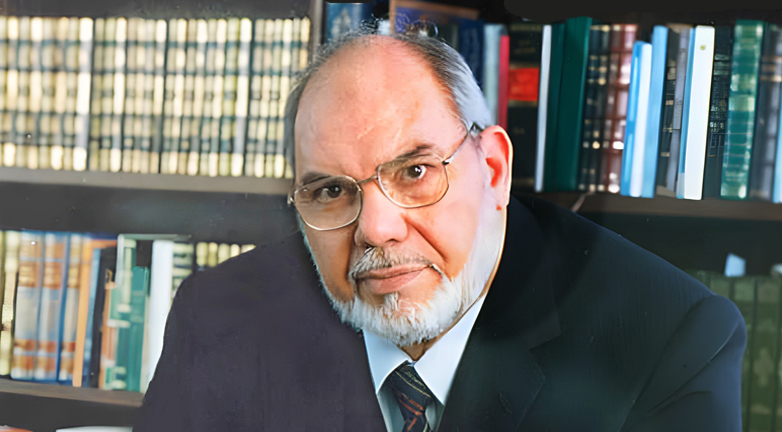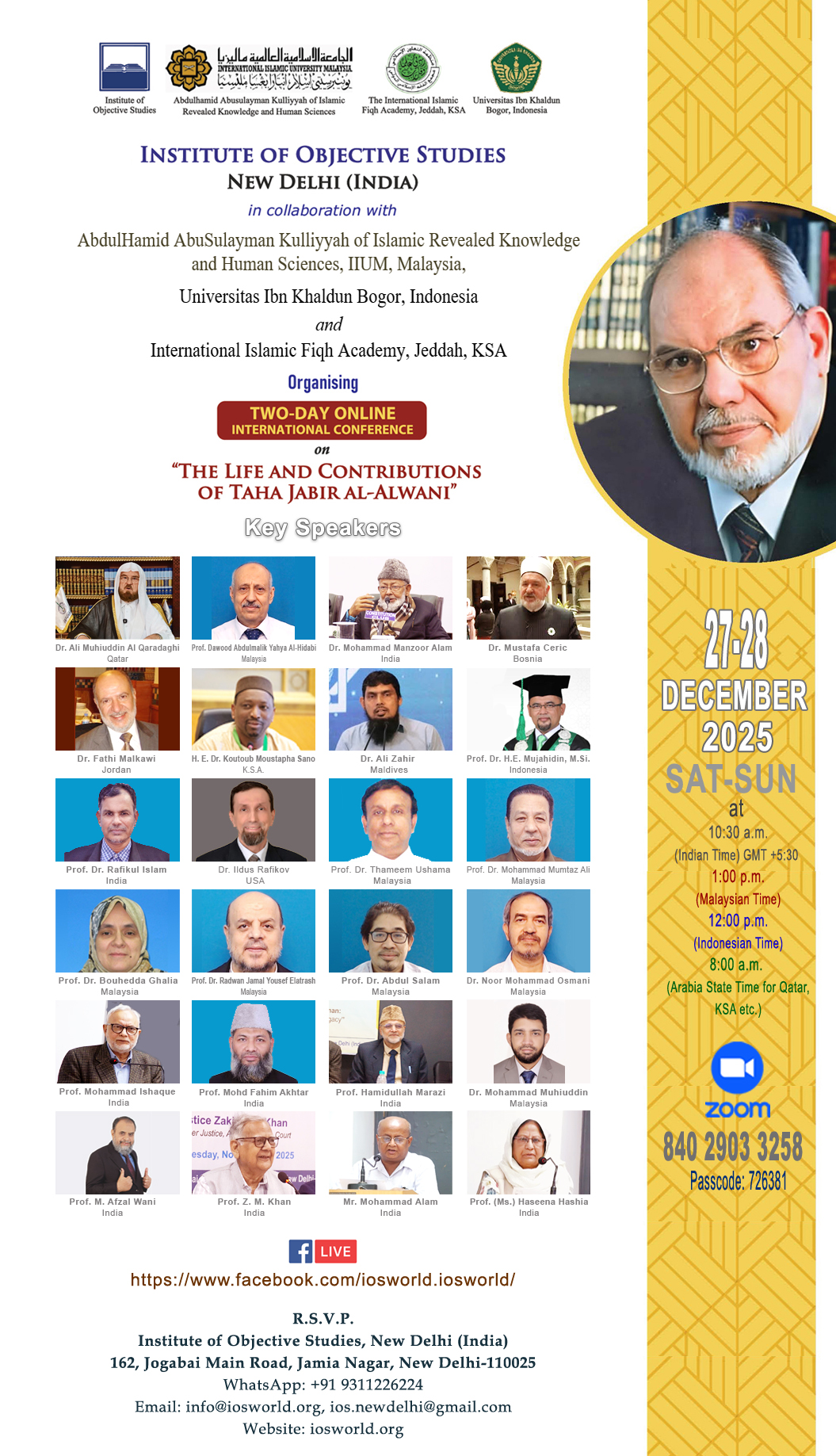| |

ABOUT CONFERENCE
The proposed two-day international conference aims to explore and celebrate the life and contributions of Dr. Taha Jabir al Alwani, a prominent Islamic scholar known for his profound impact on contemporary Islamic thought. His work in the fields of Islamic jurisprudence, interfaith dialogue, and the integration of traditional Islamic scholarship with modern challenges has left a lasting legacy. This conference seeks to bring together scholars, students, and practitioners from around the world to engage in a comprehensive examination of his contributions.
Objectives:
1. To Explore Al Alwani's Intellectual Legacy:
 Analyze his contributions to Islamic jurisprudence and thought. Analyze his contributions to Islamic jurisprudence and thought.
 Discuss his role in promoting interfaith dialogue and understanding. Discuss his role in promoting interfaith dialogue and understanding.
 Examine his efforts in integrating traditional Islamic scholarship with contemporary issues. Examine his efforts in integrating traditional Islamic scholarship with contemporary issues.
2. A deeper understanding of Taha Jabir al Alwani’s contributions to Islamic thought
 Examining his approach to restoring the balance relationship between the Quran and the Sunnah Examining his approach to restoring the balance relationship between the Quran and the Sunnah
 Renewal of Islamic Thought Renewal of Islamic Thought
3. To Foster Scholarly Dialogue:
 Provide a platform for scholars to present research related to Al Alwani’s work. Provide a platform for scholars to present research related to Al Alwani’s work.
 Encourage discussions on the relevance of his ideas in today’s world. Encourage discussions on the relevance of his ideas in today’s world.
4. To Inspire Future Research:
 Identify areas for future research inspired by Al Alwani’s contributions. Identify areas for future research inspired by Al Alwani’s contributions.
 Encourage young scholars to engage with his work and its applications. Encourage young scholars to engage with his work and its applications.
Conclusion:
This conference will serve as a significant step in recognizing and building upon the intellectual legacy of Taha Jabir al Alwani. By bringing together diverse perspectives and fostering meaningful dialogue, the event aims to inspire continued exploration and application of his ideas in addressing contemporary challenges facing the Muslim world and beyond.
The following shall be the major themes of deliberations in the conference:
Taha Jabir al Alwani –his early life, family and education, personal attachment to the Quran and the Sunnah
Taha Jabir al Alwani: A Study of his views on ethics of disagreement in Islam
The formation of International Institute of Islamic Thought and Taha Jabir al Alwani
Taha Jabir al Alwani: Interfaith Dialogue and Pluralism; his efforts in promoting dialogue between different faith communities.
Taha Jabir al-Alwani: Issues on human rights
Taha Jabir al-Alwani: Issues in contemporary Islamic political thought
Taha Jabir al-Alwani on integration of knowledge; his vision for integrating traditional Islamic education with modern sciences.
Taha Jabir al-Alwani: Contemporary challenges and Islamic thought; modern challenges through the lens of Al Alwani’s scholarship.
Taha Jabir al-Alwani: Islamic Jurisprudence and Reform: His approach to ijtihad (independent reasoning) and its implications for modern Islamic law; Source Methodology in Islamic Jurisprudence; His contributions to the understanding and application of maqasid al-shariah (objectives of Islamic law) and a fiqh for minorities
Taha Jabir al-Alwani’s approach towards the time- space factor in understanding the Quran and the Sunnah
Taha Jabir al-Alwani: Apostasy in Islam an Analytical Study
In order to benefit from the multidimensional thoughts and glorious services of Dr. Taha Jabir al-Alwani and his widely recognized intellectual legacy and to take it forward, it is vitally important to explore the possibilities of examining them. In view of this, the Institute of Objective Studies in collaboration with AbdulHamid AbuSulayman Kulliyyah of Islamic Revealed Knowledge and Human Sciences, International Islamic University Malaysia, Universitas Ibn Khaldun Bogor, Indonesia and International Islamic Fiqh Academy, Jeddah, KSA has decided to organize a two-day online international conference on the topic, “The Life and Contributions of Taha Jabir al-Alwani” at New Delhi on December 27-28, 2025 via Zoom.
|


Click here


Find Programme


Registration is FREE, but all delegates should register online through the link given below:
https://forms.gle/MX4GDwSVFdAPxE2u6
Link for attending the conference via Zoom will be shared in advance to the delegates who have successfully registered.

CONTACT US
Institute of Objective Studies
162, Joga Bai Main Road, Jamia Nagar
New Delhi –110 025 (India)
Tel. +91-11-26981187/ 26987467/26989253
Mob.: +91 9311226224, 9810131927
E-mail: info@iosworld.org
Website: www.iosworld.org |
|


